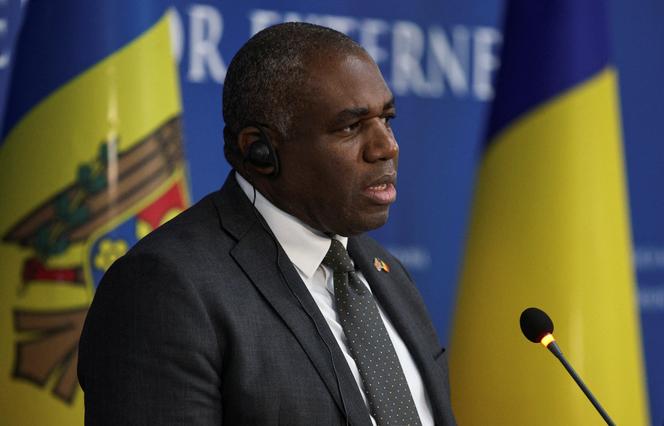


On his way to the G7 foreign ministers' meeting in Lazio, Italy, on Monday, November 25, and Tuesday, November 26, British Foreign Secretary David Lammy explained his support for Ukraine in an interview with Le Monde (and two other European newspapers, Die Welt and La Repubblica). He said he believes Vladimir Putin's threats against Europeans, with the hypersonic missile tested in Ukraine on November 21, to be "a sign of desperation." The Russian ambassador in London also claimed that the UK was "directly involved" in the conflict, after the Ukrainian army fired British Storm Shadow long-range missiles into Russian territory. "Russia's threatening escalatory and reckless language, particularly in relation to the nuclear threats, are part of Putin's playbook. We're confident that Ukraine is meeting its Article 51 obligations [acting in self-defense]," added Lammy, a 52-year-old lawyer, Labour member and close associate of Prime Minister Keir Starmer.
While he refused to go into details about deliveries of Storm Shadow missiles or other equipment to Kyiv, he insisted on London's continued support for Ukraine: "We of the United Kingdom have been determined to put Ukraine in the strongest possible position as they head into this very tough winter of 2025. We have pledged £3 billion [€3.6 billion] a year in military aid every year for as long as [the conflict] lasts. What we took from day one in coming to office [in July] is to ensure that we don't just see pledges, but we actually see the military equipment get its way out of the door into Ukraine so it's quicker and faster and that we ensure that they have money in the bank. I am confident that Ukraine will find itself in a position where it can sustain this fight through 2025."
While US President-elect Donald Trump has promised to "end the war in 24 hours," and Western diplomats are warming to the idea that Kyiv will probably be pushed to the negotiating table in the coming months, Lammy believes the time is not right: "I see absolutely no appetite from Putin to negotiate. In fact, what we see is escalation. We saw it a few months ago with the sourcing of Iranian ballistic missiles, we've seen this development, too, with troops from the DPRK [North Korea] to Russia."
Pat McFadden, a key member of Starmer's cabinet, warned on Monday at a NATO conference on cyberwarfare in London that Putin would not hesitate to use artificial intelligence against the West. Fears that Moscow is pursuing a hybrid war have increased on the European side, with suspicious warehouse fires in England, Germany and Poland in recent months. "We will meet those challenges very, very seriously if and when they emerge," said Lammy, who pointed to British experience in this area, following the attempted poisoning of double agent Sergei Skripal and his daughter in Salisbury in 2018.
You have 42.74% of this article left to read. The rest is for subscribers only.
